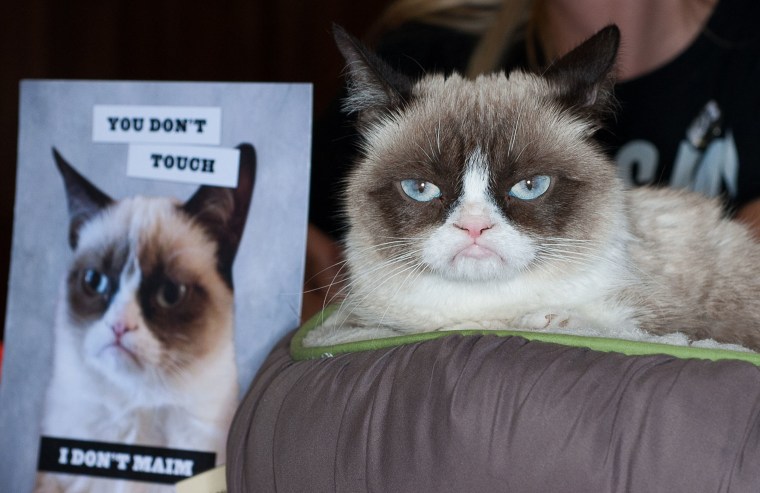LONDON — Meme creators, rejoice!
Lawmakers in the European Parliament on Thursday rejected a new copyright proposal — previously approved by a key E.U. committee — that digital rights campaigners said would change the free and open nature of the internet.
Article 13 of the E.U. copyright directive would have placed responsibility for enforcing copyright laws on platforms like Google and Facebook, and required them to use content recognition technologies — branded "censorship machines" by critics — to filter out images, audio, code or footage that infringes on copyrights.
The proposed law had drawn heated debate over how it would affect creativity on the internet and affect the power dynamics between large companies and start-ups.
Jim Killock, the executive director of the London-based digital rights organization Open-Rights Group, said in a statement after the vote: “Round one of the Robo-Copyright wars is over. The E.U. Parliament has recognized that machine censorship of copyright material is not an easy and simple fix.”
Among the quirkiest issues at hand was the argument that the legislation could unintentionally scuttle meme culture. Memes invariably re-purpose images or clips to create running jokes online, and often fall on the margins of copyright law.
Opponents of the legislation also argued that the content recognition technologies would be unable to effectively make legal and cultural judgments.
Jimmy Wales, Wikipedia founder and a high-profile opponent of the legislation, told BBC Radio 4 Today ahead of Thursday’s vote: “We need to think of the way we’re using and exploring music and other work in our lives.”
“You’re at your kid's birthday party, and you upload something, and there’s some music playing in the background," Wales said. "I don’t think any artist would say this is a violation … but what we don’t want to see is people who are just doing ordinary things [being punished]."
Wales also said he feared the legislation would benefit platforms who can afford to implement the technologies, in turn hurting smaller rivals.
“One of my biggest concerns is we would just be entrenching the power of Google and Facebook, who already have the technical capacity to do this, and smaller players and start-ups are going to be shut out as they would face the cost of doing it," Wales said.
Another controversial element of the proposed directive was Article 11, which would have required platforms like Google, Microsoft and others to pay publishers for news snippets.
The legislation had support from musicians’ groups and news publishers. They had hoped the legislation would give protection to and improve the rights of intellectual property holders of audio, video and news content.
Former Beatle Paul McCartney had written to the Parliament ahead of Thursday's vote, urging them to support the mandate for the proposal. He said the legislation would “address the value gap and help assure a sustainable future for the music ecosystem and its creators.”
The directive was approved by the European Parliament Committee on Legal Affairs last month. However, after an aggressive lobbying operation by digital rights activists, enough lawmakers dissented to force a vote in the European Parliament chamber.
The parliamentary vote would have given approval for E.U. chiefs to begin negotiations with individual member states. The rejection means the legislation has now essentially been sent back to the drawing board. Parliament will discuss and vote on proposals again in September.
“Everyone across Europe who wants this fixed will have to work hard to make sure that Parliament comes up with a sensible way forward by September,” Open Rights Group’s Killock said.
Julia Reda, a member of the European Parliament (MEP) from Germany’s Pirate Party who is the vice-chair of the Green group in the European Parliament, has been one of the biggest opponents of the legislation in the assembly.
“We did it,” she said in a video posted on her Twitter account. “Together we have shown today that important decisions about the future of the internet cannot be made behind closed doors. But the fight is far from over.”
Reda proposed a “#SaveYourInternet” day of action on August 26, ahead of the September vote.
Supporters of the legislation expressed dismay, however. Axel Voss, a German MEP for the centre-right EPP group in the European Parliament, was in charge of getting the legislation through.
In a statement Thursday, he said: “We regret that the European Parliament has rejected the mandate for the negotiations with the member states, as it could have been a real step further in establishing a legal certainty between the copyright holders and users on the internet.”
Voss also accused his opponents of “consciously spreading fake news and acting solely in the interest of big online platforms.”
“What I regret is the massive scale of false arguments used in recent weeks against the compromise,” his statement read.
